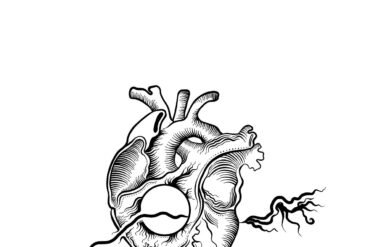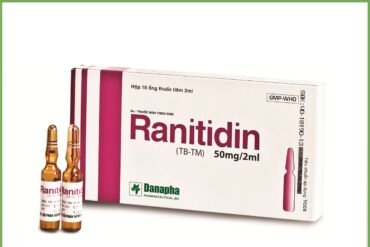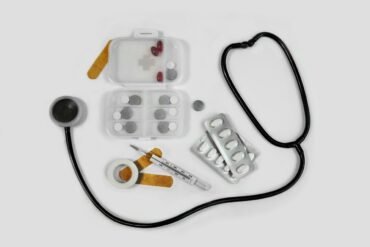Managing Anxiety and Depression with Medication

Table of Contents
- Types of Medications for Anxiety and Depression
- Common Side Effects of Medication
- Benefits of Medication for Managing Anxiety and Depression
- Safety Precautions and Considerations
- Combining Medication with Therapy and Lifestyle Changes
Types of Medications for Anxiety and Depression
Anxiety and depression are common mental health disorders that can greatly impact a person’s quality of life. While therapy and lifestyle changes are often recommended, medications can also play an important role in managing these conditions. Various types of medications are available to help alleviate the symptoms of anxiety and depression. Here are some commonly prescribed options:
- Selective Serotonin Reuptake Inhibitors (SSRIs): These medications are often the first line of treatment for both anxiety and depression. SSRIs work by increasing the levels of serotonin, a neurotransmitter associated with mood regulation, in the brain. Common SSRIs include fluoxetine, sertraline, and escitalopram.
- Serotonin-Norepinephrine Reuptake Inhibitors (SNRIs): Similar to SSRIs, SNRIs also increase serotonin levels, but they additionally target norepinephrine. Medications like venlafaxine and duloxetine fall into this category and can be effective in managing both anxiety and depression.
- Benzodiazepines: These medications are primarily used for anxiety disorders and work by enhancing the effects of gamma-aminobutyric acid (GABA), a neurotransmitter that reduces brain activity. Benzodiazepines, such as alprazolam and diazepam, are typically prescribed for short-term use and can provide rapid relief, but they may be habit-forming with long-term use.
- Tricyclic Antidepressants (TCAs): TCAs were among the first medications used to treat depression and anxiety. They affect the levels of serotonin and norepinephrine, but they often have more side effects compared to newer antidepressants. Amitriptyline and nortriptyline are examples of TCAs.
- Monoamine Oxidase Inhibitors (MAOIs): MAOIs are another older class of antidepressants that can be effective in treating anxiety and depression. However, they require strict dietary restrictions and close monitoring of potential interactions with other medications. Examples include phenelzine and tranylcypromine.
It’s important to note that everyone’s experience with medication can vary, and finding the right medication and dosage often involves some trial and error. These medications should always be prescribed by a healthcare professional who can evaluate the individual’s specific needs and monitor their progress. Additionally, it may take several weeks or even months to experience the full benefits of the medication, so patience is key. Combined with therapy and a holistic approach to mental health, medication can be a valuable tool in managing anxiety and depression.
Common Side Effects of Medication
While medication can be an effective tool for managing anxiety and depression, it is essential to be aware of the potential side effects that may occur. Although not everyone will experience these side effects, understanding what they are can help individuals make informed decisions about their treatment plan. Here are some common side effects associated with anxiety and depression medications:
- Nausea and Upset Stomach: Some individuals may experience digestive issues such as nausea, vomiting, or an upset stomach when starting or adjusting to certain medications. Taking the medication with food or at a different time of the day can help alleviate these symptoms.
- Drowsiness or Fatigue: Feeling tired or having low energy levels is a common side effect of many medications used to treat anxiety and depression. Adjusting the dosage or taking the medication at night can sometimes help reduce drowsiness during the day.
- Weight Changes: Certain medications may cause weight gain or weight loss. It is important to discuss any significant changes in weight with a healthcare professional, as they can help manage this side effect or suggest alternative options.
- Sexual Dysfunction: Some individuals may experience changes in their sexual desire or performance while on medication. It is crucial to communicate openly with a healthcare provider about any concerns in this regard, as adjustments or alternative medications can often be recommended.
- Insomnia: While some medications can cause drowsiness, others may lead to difficulty falling asleep or staying asleep. It is best to take these medications earlier in the day or speak with a healthcare professional if insomnia persists.
- Dizziness: Feeling lightheaded or dizzy can occur when starting or adjusting medication. Avoiding sudden changes in position, such as standing up quickly, can help reduce dizziness.
- Increased Anxiety or Agitation: In some cases, medication may initially increase anxiety or agitation before providing relief. It is important to monitor these symptoms and consult a healthcare provider if they persist.
Remember, not everyone will experience these side effects, and they can vary in intensity and duration. It is crucial to communicate openly with a healthcare professional about any concerns and side effects experienced while taking medication, as they can provide guidance and make adjustments if necessary. Finding the right medication and dosage often involves some trial and error, so patience and ongoing communication with a healthcare provider are essential.
Benefits of Medication for Managing Anxiety and Depression
When it comes to managing anxiety and depression, medication can be a valuable tool in the treatment process. While counseling, lifestyle changes, and support are equally important, medication can offer significant benefits. Here are several advantages that medication can provide:
- Reduced Symptoms: Medication helps alleviate the symptoms of anxiety and depression, such as persistent sadness, loss of interest, or excessive worry. It can help restore emotional balance and make day-to-day activities more manageable.
- Improved Quality of Life: By reducing symptoms, medication can improve overall well-being and enhance the ability to engage in daily activities and maintain healthy relationships. It can contribute to a more fulfilling and enjoyable life.
- Enhanced Effectiveness of Therapy: Medication can enhance the effectiveness of therapy by allowing individuals to better engage in the therapeutic process. It can help alleviate severe symptoms, enabling individuals to actively participate in counseling sessions and make the most out of therapy.
- Prevention of Relapse: Medication can help prevent relapses or the recurrence of symptoms. By stabilizing mood and reducing anxiety, it provides a protective effect against future episodes of depression or anxiety. This can lead to long-term symptom management and improved quality of life.
- Quick Relief: While therapy and lifestyle changes may take time to show results, medication can provide relatively quick relief for anxiety and depression symptoms. This can be particularly helpful during acute phases of mental health conditions or in emergency situations.
- Individualized Treatment: Medication allows for individualized treatment plans tailored to each person’s specific needs. Different medications work differently for each individual, and healthcare providers can determine the most suitable medication and dosage to optimize effectiveness.
It’s important to note that medication should always be used in conjunction with therapy and other therapeutic interventions. It is recommended to consult with a qualified healthcare professional to discuss the potential benefits and risks associated with medication for managing anxiety and depression. They can provide personalized advice and guidance, taking into account your unique circumstances.
Safety Precautions and Considerations
Managing anxiety and depression with medication can be an effective approach to achieve relief and improve overall well-being. However, it is crucial to prioritize your safety and consider some important precautions before starting any medication. Here are some key considerations:
- Consult with a healthcare professional: Before initiating any medication, it is essential to consult with a qualified healthcare professional such as a psychiatrist or primary care physician. They can evaluate your symptoms, provide an accurate diagnosis, and guide you towards the most suitable medication for your condition.
- Inform about your medical history: Share your complete medical history, including any previous mental health conditions, allergies, or other relevant medical conditions, with your healthcare provider. This information will help them make an informed decision and choose a medication that is safe and compatible with your specific needs.
- Discuss potential side effects: Every medication can have potential side effects. It is important to discuss these with your healthcare provider to understand what to expect. Common side effects might include drowsiness, dry mouth, dizziness, or changes in appetite. Knowing about possible side effects will help you cope better and seek medical help if needed.
- Be aware of interactions: Inform your healthcare provider about any other medications, supplements, or herbal remedies you are taking. Some medications may interact with each other, leading to adverse effects. Your healthcare provider can evaluate potential drug interactions and adjust your medication accordingly.
- Maintain regular communication: Staying in touch with your healthcare provider is vital during medication management. Regular check-ins and follow-up appointments allow them to monitor your progress, evaluate the effectiveness of medication, and modify the treatment plan if necessary.
- Follow the prescribed dosage: Adhere to the prescribed dosage and schedule strictly. Taking more or less than prescribed can affect the medication’s effectiveness and increase the risk of side effects. If you have concerns about the dosage, consult your healthcare provider before making any changes.
- Monitor your own well-being: Keep track of your symptoms, mood changes, and any unexpected reactions while on medication. If you notice any significant or troubling shifts, inform your healthcare provider immediately. They can reassess your treatment plan and make appropriate adjustments.
Remember, managing anxiety and depression with medication is a collaborative process between you and your healthcare provider. By taking these safety precautions and considerations, you can enhance the effectiveness of your treatment and ensure your well-being throughout the journey towards improved mental health.
Combining Medication with Therapy and Lifestyle Changes
Managing anxiety and depression often involves a multi-faceted approach that combines medication with therapy and lifestyle changes. While medication can provide relief from symptoms, it is crucial to integrate other strategies to address the underlying causes and enhance overall well-being. Here are some key points to consider:
- Medication: Anti-anxiety and antidepressant medications can help regulate brain chemistry and alleviate symptoms. It is essential to consult with a healthcare professional who can prescribe the right medication and dosage tailored to your individual needs. Regular follow-ups and open communication are vital for monitoring progress and managing any potential side effects.
- Therapy: Combining medication with therapy can greatly contribute to the long-term management of anxiety and depression. Cognitive-behavioral therapy (CBT) and psychotherapy are common approaches that help individuals develop coping mechanisms, challenge negative thought patterns, and strengthen self-awareness. Working with a licensed therapist can provide a supportive environment to explore underlying issues and develop healthier strategies for managing stress and emotions.
- Lifestyle Changes: Incorporating lifestyle changes can significantly contribute to the management of anxiety and depression alongside medication and therapy. Regular exercise promotes the release of endorphins, which can improve mood and reduce symptoms. Additionally, maintaining a balanced diet, getting sufficient sleep, and reducing alcohol and caffeine intake can positively impact mental health. Exploring relaxation techniques such as meditation, deep breathing exercises, and mindfulness can also help manage stress and promote emotional well-being.
- Social Support: Building a strong support network is crucial in managing anxiety and depression. Surrounding yourself with understanding and empathetic individuals can provide emotional support and practical assistance when needed. Participating in support groups or seeking guidance from peer networks can help alleviate feelings of isolation and provide insights from others facing similar challenges.
- Self-Care: Prioritizing self-care activities is essential in managing anxiety and depression. Engaging in hobbies, pursuing interests, and setting aside time for relaxation and self-reflection can promote a sense of fulfillment and reduce stress. Taking care of oneself physically, emotionally, and mentally is fundamental for overall well-being.
- Regular Evaluation: It is crucial to regularly reassess the effectiveness of medication, therapy, and lifestyle changes in managing anxiety and depression. Consulting with healthcare professionals, therapists, and support networks can help identify areas that require adjustments or additional support. Open communication and proactive involvement in one’s treatment plan are key in achieving long-term mental wellness.
Remember, managing anxiety and depression requires a holistic approach. Combining medication with therapy and lifestyle changes can increase the likelihood of achieving and sustaining positive outcomes. With the right support and a dedicated commitment to self-care, individuals can effectively manage their mental health and lead fulfilling lives.


























